Key Takeaways
- Assisted living communities provide specialized support for seniors with various disabilities through accessible environments and trained staff
- Services include personal care assistance, medication management, adaptive programming, and 24/7 support for seniors with medical needs
- Communities offer accessibility features like wheelchair-accessible spaces, assistive technology, and safety monitoring systems
- Qualification depends on individual care needs assessment, with some conditions requiring higher levels of care than assisted living can provide
Assisted Living Can Help with More than Connection
When your loved one lives with a disability, finding the right senior care can feel overwhelming. You want a place that understands their unique needs while providing the dignity and independence they deserve. Exploring who assisted living is for can help you understand if this level of care matches your family’s needs.
Assisted living communities can provide comprehensive support for seniors with disabilities through personalized care plans, accessible environments, specialized staff training, and adaptive programming that promotes independence and quality of life. These communities create supportive environments where your loved one can thrive while receiving the assistance they need.
Understanding How Assisted Living Supports Seniors with Disabilities
What Types of Disabilities Can Assisted Living Communities Support?
Assisted living communities welcome seniors with various types of disabilities and challenges. Many communities provide specialized support tailored to each person’s unique situation.
Physical challenges that assisted living communities commonly support include mobility limitations, arthritis, and conditions affecting movement. Vision and hearing impairments are also well-accommodated through adaptive technologies and trained staff support.
Daily Living Support Services Available
Your loved one can receive personalized assistance with daily activities that may have become challenging. This includes help with bathing, dressing, grooming, and other personal care needs.
Medication management becomes simpler when trained staff help organize and administer medications safely. Many communities also provide health monitoring to track changes in your loved one’s condition.
Additional support includes mobility assistance throughout the community, transportation to appointments, meal preparation, and dining support when needed.
Accessibility Features & Accommodations for People with Disabilities
Physical Environment Modifications
Modern senior living communities design their spaces with accessibility in mind. Wide doorways, ramps, and wheelchair-accessible pathways make navigation easier for people with mobility challenges.
Bathrooms feature roll-in showers, grab bars, and raised toilet seats to promote safety and independence. Common areas, dining rooms, and activity spaces are designed to accommodate wheelchairs and mobility devices.
Emergency call systems are installed throughout living spaces and common areas. This gives you peace of mind knowing help is always available when your loved one needs assistance.
Specialized Equipment and Technology Support
Communities often provide assistive devices to help with hearing and vision challenges. This might include amplified phones, large-print materials, or visual alert systems.
Mobility aids like walkers, wheelchairs, and transfer equipment are typically available when needed. Staff members receive training on how to safely use this equipment.
Adaptive technology helps residents communicate and stay connected with family. Safety monitoring systems provide additional security while respecting your loved one’s privacy and independence.

Healthcare and Medical Support Available in Senior Living
24/7 Support for Seniors with Medical Needs
Round-the-clock staffing means someone is always available to help your loved one. Trained caregivers can respond quickly to medical concerns or emergencies.
Many communities work with visiting physicians, nurse practitioners, and healthcare providers who come on-site. This makes medical appointments more convenient and less stressful.
Physical therapy, occupational therapy, and speech therapy services are often available either on-site or through partnerships with local providers. This ongoing support helps maintain and improve functional abilities.
Social Engagement and Quality of Life Benefits
Adaptive Programming and Activities
Activities are modified to include people of all ability levels. This means your loved one can participate in social events, games, and hobbies regardless of their limitations.
Therapeutic recreation programs combine fun with beneficial exercises and cognitive stimulation. These activities are designed to improve mood, maintain skills, and encourage social interaction.
Adaptive fitness programs help maintain physical health through gentle exercises suitable for various ability levels. Art, music, and hobby groups provide creative outlets and opportunities for self-expression.
Building Community Connections
Living in a community setting helps reduce the isolation that many seniors with disabilities experience at home. Your loved one will have opportunities to build friendships with peers who understand their challenges.
Support groups connect people with similar experiences, creating bonds and mutual understanding. Family involvement is encouraged through regular visiting opportunities and community events.
Some communities offer volunteer opportunities that allow residents to contribute their skills and experience. Research shows that meaningful social interactions help maintain a sense of purpose and connection to the broader community.
How Does a Senior Qualify for Senior Living with Disabilities?
Assessment and Care Planning Process
The qualification process begins with a comprehensive evaluation of your loved one’s health, functional abilities, and care needs. This assessment helps determine if assisted living is the right level of care.
Care teams create individualized service plans based on this evaluation. These plans outline specific services and accommodations needed to support your loved one’s independence and well-being.
State licensing requirements and community policies guide eligibility criteria. You’ll need to provide medical documentation, care history, and other relevant information during the admission process.
Who Is Not a Good Candidate for Senior Living?
Some individuals require more intensive medical care than assisted living can provide. This includes people who need 24-hour skilled nursing supervision or complex medical interventions.
Severe behavioral challenges that could pose safety risks to other residents may not be appropriate for assisted living settings. Each situation is evaluated individually to determine the right care environment.
People who cannot participate in emergency evacuation procedures or require constant one-on-one supervision might need a higher level of care than assisted living offers.
Oak Ridge Is Set up for Your Success
At Oak Ridge Senior Living, we understand that every person’s journey with disabilities is unique. Our compassionate team is here to help you explore whether our assisted living services align with your loved one’s needs.
We invite you to schedule a personalized tour where you can see our accessible amenities, meet our caring staff, and envision how your loved one might thrive in our supportive community. Contact us today to take the first step toward finding the right care solution for your family.



